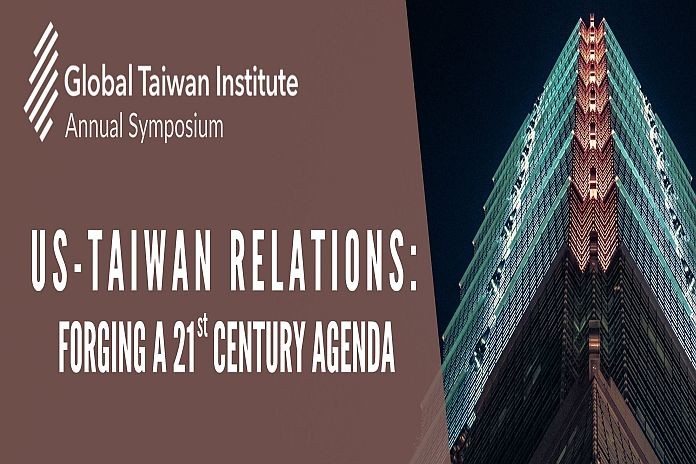By Caribbean News Global ![]()
USA / TAIWAN – The Global Taiwan Institute (GTI) hosted its 2021 Annual Symposium, entitled “US-Taiwan Relations: Forging a 21st Century Agenda,” over two half-day virtual sessions on September 15 and 16, 2021.
The flagship event on GTI’s calendar, the Annual Symposium is a yearly forum that convenes leading experts on US-Taiwan policy to discuss current challenges and propose future solutions.
This year’s symposium featured introductions by GTI chairman Wen-yen Chen and ambassador Bi-khim Hsiao, as well as keynote remarks by Taiwan foreign minister H.E. Jaushieh Joseph Wu, Congressman Ami Bera, and the 28th National Security Advisor and chairman of GTI’s US-Taiwan Task Force, Ambassador (ret.) Robert C. O’Brien.
The event also included four-panel discussions on pressing strategic, economic, security, and diplomatic issues in US-Taiwan relations. The symposium resulted in five distinct policy recommendations focused on strengthening US-Taiwan relations.
- GTI Annual Symposium 2021: US-Taiwan Relations: Forging a 21st Century Agenda (Day 1)
- GTI Annual Symposium 2021: US-Taiwan Relations: Forging a 21st Century Agenda (Day 2)
Policy recommendations
These policy recommendations derive from observations made by some of the keynote speakers and panelists during the conference:
1) Taiwan’s defense capabilities and US-Taiwan military cooperation
Taiwan should show that it is committed to its own defense by raising its defense expenditures. Taiwan should also pursue defense strategies for responding to an invasion that can prolong a takeover of the island long enough to allow allies to come to its aid. In addition, the United States should hasten the delivery of arms sales and capacity-building programs that enhance Taiwan’s asymmetric capabilities. Taiwan and the United States should also increase joint military training programs and hold high-level discussions on defense coordination on these matters.
2) Taiwan’s international space and support
The United States should increase its own participation in international arenas with a goal of including Taiwan in those fora. Washington should forcefully preserve Taiwan’s international space and help Taiwan maintain its current diplomatic relations, for instance by signing the Compact of Free Association with Palau, Micronesia, and the Marshall Islands. The United States should help support Taiwan’s membership in international organizations and press for its meaningful participation in the United Nations system. The United States and Taiwan should continue intergovernmental exchanges (such as parliamentary exchanges) with other like-minded countries to ensure Taiwan’s continued international engagement.
3) Allies and regional partnerships
The United States should pursue a policy of “strategic deterrence” by building partnerships in the military, political, and economic spheres with like-minded countries with shared values and interests to deter a Chinese invasion of Taiwan. Indo-Pacific countries—especially Japan, the United States, and Australia, and India (Quad)—should be united in their efforts to deter the PRC from taking military action against Taiwan. Washington could engage more allies and partners with shared interests—such as Indonesia, the Philippines, Vietnam, and European countries—and integrate them into a framework broader than the current network of US alliances. The United States and its allies and partners should share risk assessments and coordinate strategies arising from the China challenge.
4) Free trade agreement
Trade relations between the United States and Taiwan have been lagging compared to more robust developments in other areas of the bilateral relationship. The United States should both broaden and deepen its trade engagement with Taiwan and begin negotiations on a Free Trade Agreement with Taipei.
5) Supply chain security
The COVID-19 pandemic has revealed the importance of robust global supply chains, and the United States and Taiwan should work together to build supply chain resiliency, especially in the high-technology sector. A high-level working group focused on addressing geoeconomic challenges, supply chain security, and defense cooperation should be set up between the United States and Taiwan with like-minded allies and partners.
Source: Global Taiwan Institute





